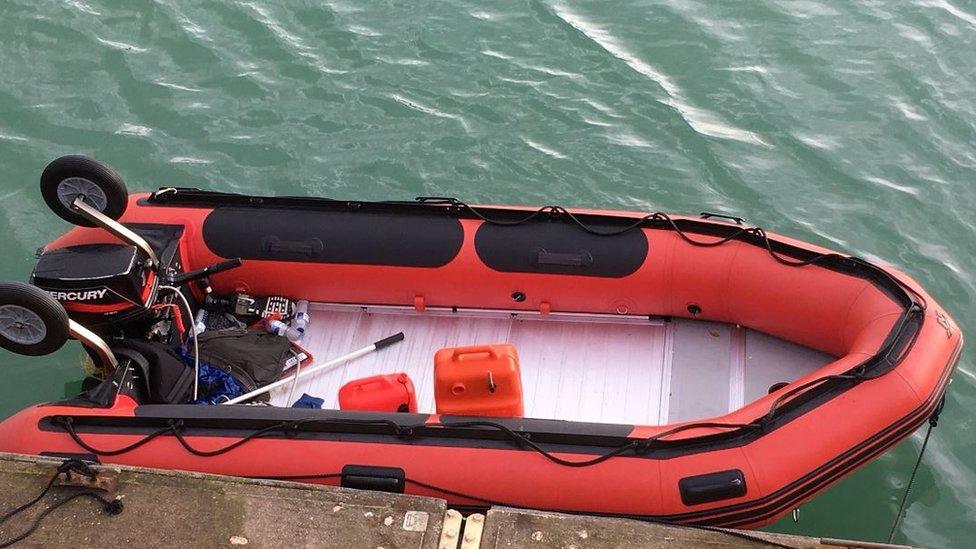Eight children among migrants intercepted off Kent coast by Border Force
- Published
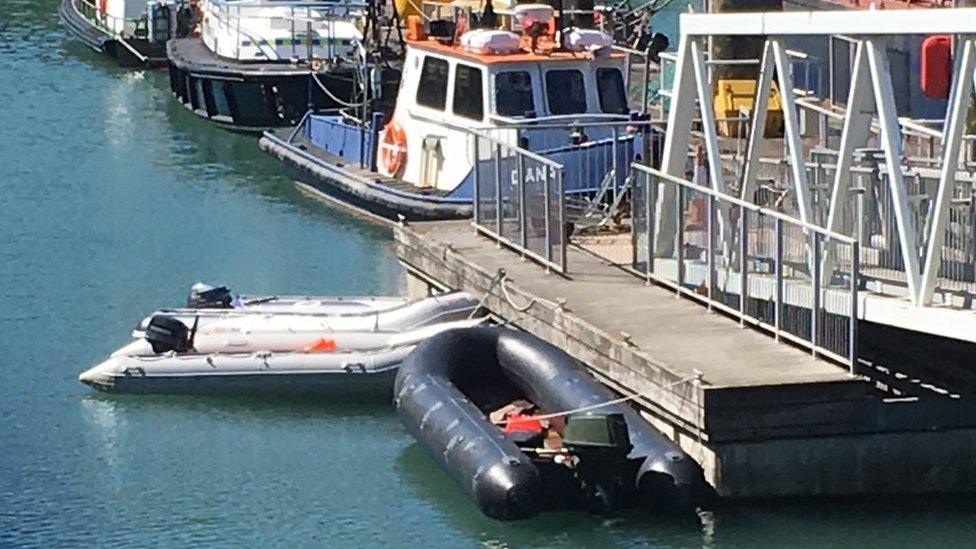
The three boats used to carry 42 people across the Channel this weekend
Eight children were among 26 migrants who were intercepted in two dinghies off the Kent coast, Border Force said.
A total of 42 migrants - including 10 children - have been brought to Dover by authorities after crossing the Channel in small boats this weekend.
The first boat, carrying 14 people, was spotted by a fishing vessel in the early hours, before being intercepted by two Border Force cutters.
A second boat with 11 men on board was met by a Border Force patrol boat.
All 26 have been checked over and four were sent for "further assessments" in hospital, the Home Office said.
The group - a mixture of Iraqi and Iranian nationals - will be interviewed by immigration enforcement officers.
Two children were among 16 migrants intercepted in the Channel and brought to Dover on Saturday.
At least 564 people, including about 50 children, have crossed the Channel in small boats since 3 November 2018.
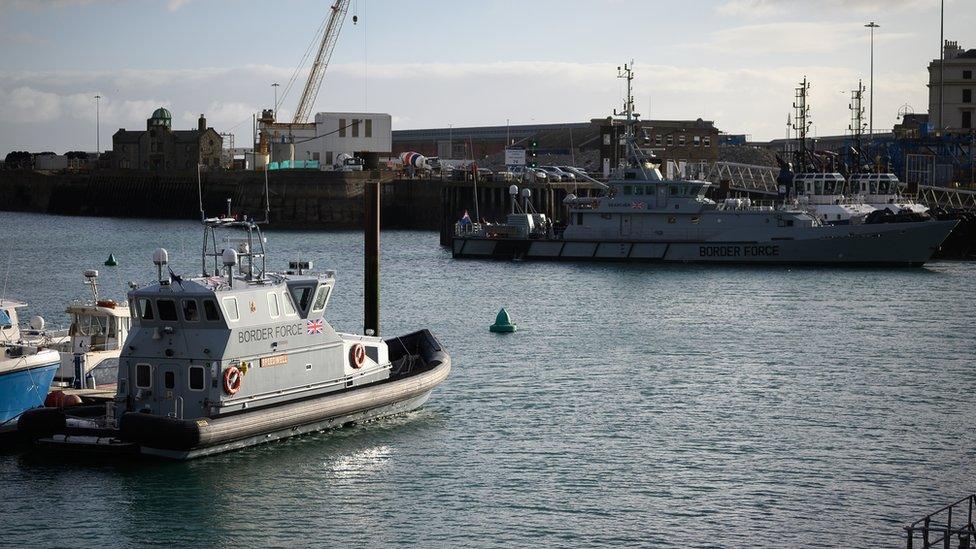
Dover MP Charlie Elphicke said that the government's attempts to stop people crossing the Channel were not working.
He called for "cross-Channel security zone, with round-the-clock aerial surveillance".
He said migrants should then be "helped safely back to France".
"Traffickers and migrants alike should know that there will be no hope of getting to Britain."
'Shouldn't have to risk lives'
Bridget Chapham, of Kent Refugee Action Network, said the charity had worked with about ten unaccompanied children who arrived by dingy.
She said the majority were Kurdish and had a "strong claim to asylum".
"The government could stop people making these extremely dangerous journeys tomorrow if they, for example, open an office on the north coast of France, allowing people to make asylum claims.
"They shouldn't have to risk their lives to do that."
The Home Office said: "Since the Home Secretary declared a major incident in December we have agreed a joint action plan with France and increased activity out of the Joint Coordination and Information Centre in Calais.
"It is an established principle that those in need of protection should claim asylum in the first safe country they reach."
A note on terminology: The BBC uses the term migrant to refer to all people on the move who have yet to complete the legal process of claiming asylum. This group includes people likely to be granted refugee status, as well as people who are seeking jobs and better lives, who governments are likely to rule are economic migrants.
- Published11 May 2019
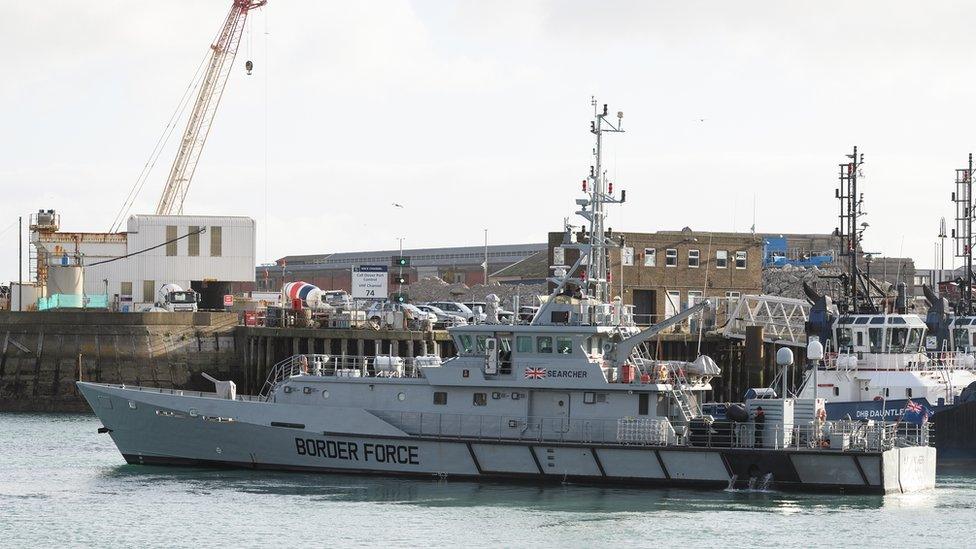
- Published28 December 2018
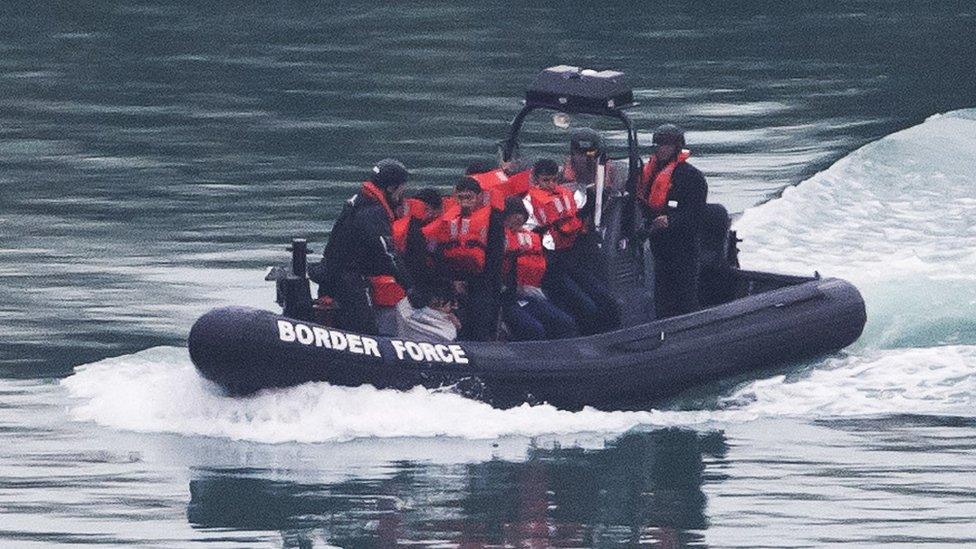
- Published26 November 2018
